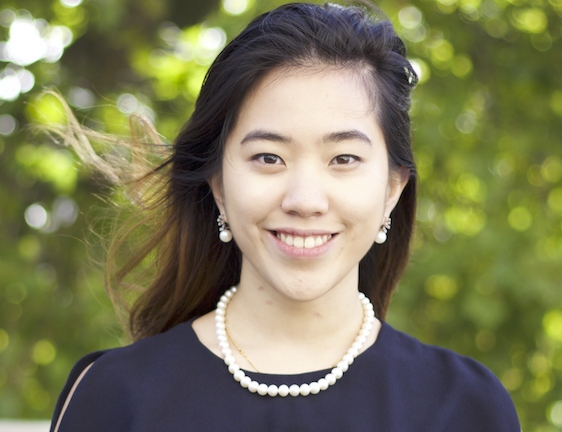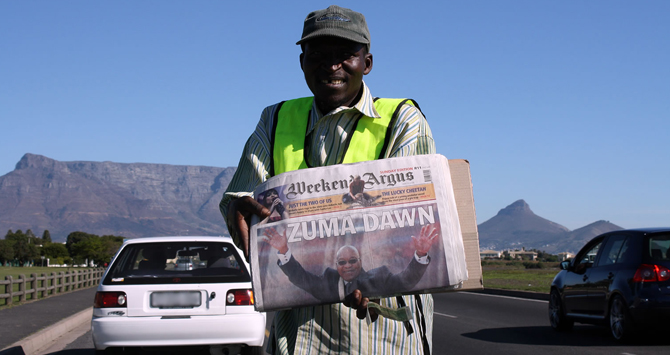Professor in Practice, Duncan Green, presents three top campaign proposals from his Advocacy, Campaigning and Grassroots activism class.
I’ve been selecting some of the student assignments from the initial year of my new LSE course on ‘Advocacy, Campaigning and Grassroots activism’ to show as examples to next year’s cohort, and thought you might like a taste too.
Each student had to produce a 2,000 word project proposal for something they would like to change and an accompanying blog. Here are 3 examples from Singapore. the Philippines and Austria.
In Singapore, Joelle Yeo [joellexyj[at]gmail.com) wants to achieve ‘a national policy change regarding Singapore’s Medisave policies to expand the scope of Medisave usage to include sexual health testing services’. But how to do that in a place like Singapore? Her power analysis suggests:
‘Singapore is a developmental state. Thus, organizational and decision-making structures are largely confined to the government, with little room for citizens to protest or challenge the state. The Singapore government possesses a lot of visible power as well as hidden power, as decisions are largely made ‘behind-the-scenes’. At the same time, invisible power is present as well in the form of conservative social norms and beliefs both at the government and national level. For example, the public advisory issued by the government regarding STIs is “abstinence, being faithful to a partner” and “avoid(ing) casual sex, or sex with sex workers.”
Here’s her stakeholder map. On the basis of which, she writes:
‘Prof Roy Chan has been identified as having high influence and high support. This is because of his dual role in the government and the sexual health advocacy scene. Not only is he a President’s Scholar, he is also the Director at the National Skin Centre (which oversees the Department of STI Control), an adjunct professor at the Saw Swee Hock School of Public Health and the Founder/President of the non-governmental organisation Action for Aids (AFA). He also sits on the National AIDS/HIV Policy Committee.
Thus, I will focus on influencing Prof Roy Chan to support and propose this national policy change. Together with the other DSC specialist doctors, he will be well-suited to convey the message to the Ministry of Health (MOH), given his influence in the government and his progressive stance towards sexual health. I will also reach out to Senior Minister of State (SMS) Amy Khor, because she frequently speaks out about HIV/AIDS and is the Chairman of the National AIDS/HIV Policy Committee. This is in contrast to the Minister of Health Gan Kim Yong, who has been relatively silent on such issues.
Joelle’s tactics? ‘Given the outcome of the power analysis and stakeholder mapping, insider tactics are likely to be more effective than outsider tactics such as popular mobilisation. This is provided the suggestions made are aligned with their interests and do not threaten the existing system. In such contexts, evidence-based influencing will be the most effective way to convince the government. Given that I will be targeting policymakers, the evidence provided should consist of big ideas and positive visions.’
She’ll also be using Singapore’s urge to be at the top of every global league table:
‘Singapore was ranked first amongst 188 countries on track to meet health-related sustainable development goals (SDG) for the year 2030 in a study published by the Lancet… [But it] is the only country that has no form of free STI testing out of the 33 countries measured. Singapore’s Asian counterparts – Japan, South Korea and China provide free STI testing services. Even Singapore’s closest geopolitical neighbours, Malaysia and Indonesia (ranked 52th and 125th respectively) provide free STI testing services, despite being Muslim-dominated and perhaps even more conservative than Singapore.’
Joelle’s full proposal here: Yeo, STD testing in Singapore.
Arbie Baguios (arbiebaguios[at]gmail.com, or see his blog) asks ‘Could a radio adaptation of Les Miserables stop the killings in the Philippines?’
Gross human rights violations. Over 12,000 killed. And yet, Philippine President Rodrigo Duterte’s “war on drugs” enjoys high satisfaction rating from the public.
This seems crazy. Until you realise that in the Philippines, human rights are understood to be earned by those who deserve it – instead of being inherent and universal, as stated in the Universal Declaration of Human Rights.
This means criminals including drug users are seen as undeserving of human rights. So when the government kills them without due process, the public tacitly approves. And when human rights defenders decry the abuses, they’re demonised and labelled “terrorists”.
If human rights were to be upheld in the Philippines, the goal is clear: the norm must be changed from human rights as earned and deserved to inherent and universal.
So perhaps a radio adaptation of Victor Hugo’s novel that later became a West End phenomenon (starring Lea Salonga!) could change people’s minds. After all, its deeply human characters and profound treatment of issues like justice has the audience rooting for a convict and a prostitute.
(Plus, Filipinos love musicals – and Lea Salonga!)
Human rights education through radio drama has already been done in places like Pakistan to promote women’s rights; Kenya to campaign against human rights violations by police; and Malawi to protect the rights of people with albinism.
In the Philippines, there’s already a long history of human rights education. From 1998 to 2007, a “Human Rights Education Decade Plan” ensured that human rights were taught in schools at all levels.
The campaign’s “Theory of Change,” therefore, could look something like this (see left):
So could a radio adaptation of Les Mis stop the killings in the Philippines?
Not exactly.
But a human rights education campaign through radio drama that builds on local successes, involves local actors, is optimised through RCTs, and uses fiction to empower people could change the way Filipinos think about human rights – from earned and deserved to inherent and universal.
Understanding that human rights are inherently endowed to all of us could then lead to demand for policy changes that respects everyone’s rights – regardless of whether they are a convict, a prostitute, or even a drug addict!
Arbie’s full proposal here: Baguios. Human Rights in the Philippines
Teresa Schwarz came up with the memorable title ‘Don’t be a (douche) Bag’ for a campaign to ban plastic bags in Austria. A central piece of her campaign was to increase public awareness and political pressure by capitalizing on Austrians’ sense of humour and love of free tote bags, which combined make up the perfect tool for the movement. Reusable bags with the phrase “Sei kein Sack’erl” (“Don’t be a (douche)bag”) can generate attention, visualize public support and possibly reach unaware consumers. Sympathizing businesses can add the slogan to their reusable bags to spread the movement. A game can be created that encourages people to photobomb plastic bag users with their “Sei kein Sack’erl” bags and post them online; special points are given for catching politicians. This could be a fun way to demonstrate the silliness of using plastic bags while simultaneously shaming retailers still providing them and engaging the public without generating any additional costs.
According to her blog:
‘Over 70% of Austrians already agree that the time has come to finally implement a ban on plastic bags. Italy and France have paved the way within the EU and now it is time to follow suit.
While some may fear that a ban on plastic bags would interrupt the local industry, Italy and France have actually shown the opposite. In the wake of their policy changes, both countries managed to establish new markets and become leaders in the growing biodegradable industry. Since Austria’s plastic producers are already shifting their focus towards alternative materials, they could be early enough to create an additional competitive cluster in Europe.
Opponents argue that the Austrian recycling industry is efficient enough to make a ban obsolete. While I do applaud  the waste management system in Austria, even a well-functioning recycling industry cannot equate to not producing waste in the first place. Particularly since 89 % of plastic bags are only used once.
the waste management system in Austria, even a well-functioning recycling industry cannot equate to not producing waste in the first place. Particularly since 89 % of plastic bags are only used once.
The second argument states that the production of paper or biodegradable bags uses the same amount of energy as the current plastic bag industry and that a shift is therefore not environmentally desirable. While paper bags are not unproblematic, this idea completely ignores alternative fabric-based reusable bags and more importantly neglects the long-term impact the different materials have on the environment. A plastic bag is on average used for 20 Minutes, but it takes 400 years to decompose into nature. Paper bags accomplish this in about two months.
Teresa’s full campaign proposal, complete with systems and stakeholder maps here: Schwarz, plastic bags in Austria
I’m definitely hoping to stay in touch with these three, and their equally talented classmates to see how many of these campaigns turn into reality.
Dr Duncan Green is Senior Strategic Adviser at Oxfam GB, Professor in Practice in International Development at the LSE where he teaches Advocacy, Campaigning and Grassroots activism. His daily development blog can be found on www.oxfamblogs.org/fp2p/.
This article was first posted on fp2p.
The views expressed in this post are those of the author and in no way reflect those of the International Development LSE blog or the London School of Economics and Political Science.







